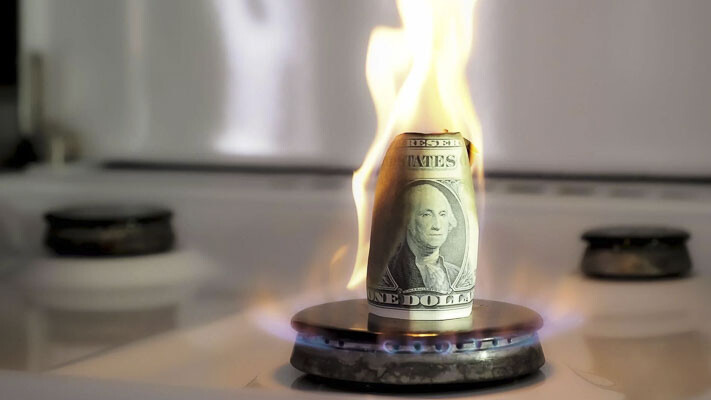
The ruling threw a monkey wrench into SBCC’s new rules passed last year requiring heat pumps for space and water heating in all new residential and commercial construction in Washington
Brett Davis
The Center Square Washington
The Washington State Building Code Council (SBCC) at a Wednesday special meeting, passed two motions related to the 9th Circuit Court of Appeals ruling earlier this year in California Restaurant Association v. City of Berkley that found federal law preempts state and local restrictions on the use of natural gas.
The 9th Circuit’s ruling threw a monkey wrench into SBCC’s new rules passed last year requiring heat pumps for space and water heating in all new residential and commercial construction in Washington – that is, an effective ban on traditional HVAC systems and natural gas. The new rules were set to take effect on July 1.
In one motion, the SBCC voted to give the first official notice needed to start rulemaking actions designed to make sure the new codes are in accordance with the 9th Circuit Court’s ruling. In the other motion, the SBCC voted to delay implementing the new codes, per emergency rules, for 120 days starting on June 30.
SBCC member Kjell Anderson explained the rationale for the two motions.
“I realize that a code delay has significant impact on industry, and I wouldn’t entertain the idea lightly, but when the Berkeley decision was handed down it became obvious that the council was under the geographical jurisdiction of the 9th Circuit,” he said at the virtual meeting. “We need to comply with their ruling or else leave ourselves and our building officials open to legal risk.”
Boosters of the new rules claim they are a cost-effective step in reducing carbon emissions across the state by burning less fossil fuels as part of the fight against climate change.
Others have criticized the proposal on the grounds it will increase the purchase price of a home, while expressing skepticism about the electric grid’s ability to handle the additional load. According to a recent Building Industry Association of Washington news release, Washington’s new energy codes add a minimum of $9,200 to the cost of a new home.
That conflict was reflected in testimony from members of the public.
Larry Andrews of Andrews Mechanical in Spokane said he was in favor of delaying the new energy codes.
“And all this highfalutin heat pump stuff sounds really good, but when it’s in actual use – it’s been in the field some period of time – the people that are suffering are everyone of us in this state, because many of the projects I am having to go back on right now are costing umpteen hundreds of thousands of dollars to bring them back to where they could be,” he said. “And this technology that’s available is still in the learning stage, but it was brought forth like it’s the cream on top of the cake, which it isn’t.”
Richland’s Lora Rothbone had a different take.
“I just want to ask that you do not reduce or eliminate the authority of the State Building Code Council,” she said.
Rothbone went on to say, “My understanding is their working towards making buildings more energy efficient, primarily by these heat pumps that are new technology, do work well in cold climates, and because of our hydroelectric power here, there really isn’t a reason to be using natural gas.”
Brian Ludwig of INNOVA Architects, Inc. in Tacoma staked something of a middle-ground approach.
“I fully understand the interest in reducing demand or focus on fossil fuel dependency,” he said. “I do support the idea of delaying the adoption until there is a full legal understanding and industry understanding of the ramifications of this direction.”
This report was first published by The Center Square Washington.
Also read:
- Opinion: OIC tells consumers not to pay for ‘insurance’ you won’t likely benefit from: Does that include WA Cares?Elizabeth New (Hovde) of the Washington Policy Center believes you should consider yourself warned by the Office of the Insurance Commissioner about WA Cares and its maybe-only benefit.
- Opinion: Same road, different speed limit?Target Zero Manager Doug Dahl addresses a question about speed limit signs going into and leaving town.
- Progress being made at GRO Parade of Homes siteThe 2024 GRO Parade of Homes, presented by the Building Industry Association of Clark County, is a little more than a month away, and builders are busy completing the luxury homes before the big event, scheduled for Sept. 6 through 22 in Felida.
- Has trust in the media tanked over coverage of President Biden’s decline?After President Joe Biden’s calamitous debate performance against former President Donald Trump, and days after Biden’s decision Sunday not to seek reelection, there are still many questions about how the news media covered Biden’s mental and physical decline.
- Opinion: Hiding the growing cost of the Interstate Bridge replacementJoe Cortright of the City Observatory addresses the rising cost of the Interstate 5 Bridge replacement project.
- Letter: ‘This election I am NOT voting for Greg Cheney’Clark County resident Wynn Grcich shares her thoughts on Rep. Greg Cheney and the issue of fluoridation in area drinking water.
- Major gas line leak closes major arterial in Clark CountyFirefighters from Clark County Fire District 6 responded Thursday (July 25) afternoon to the scene of a major natural gas leak on NE 99th Street, directly in front of Columbia River High School.











